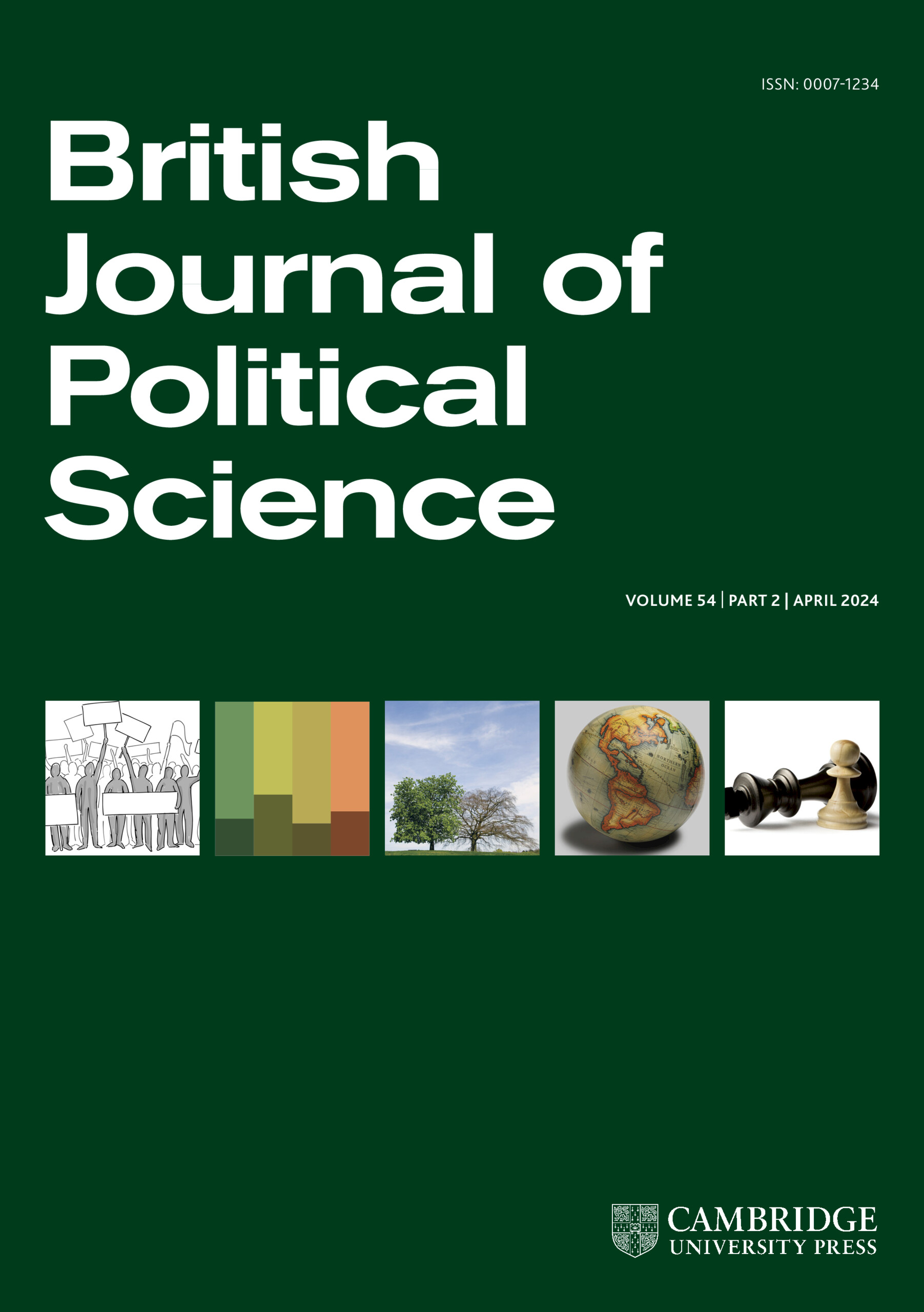冲突态度的长期变化:动态视角
IF 4.7
1区 社会学
Q1 POLITICAL SCIENCE
引用次数: 0
摘要
大量文献研究了暴力冲突中的公民如何应对冲突事件,特别是暴力升级。然而,这些态度变化的时间性质仍未得到充分研究。我们认为,大众对较大暴力的反应通常是直接而短暂的,表明对身体威胁的短期情绪反应。然而,从长远来看,公众舆论通常是由非暴力事件塑造的,这些事件表明了对手的感知意图,反映了较慢但更深层次的信念更新过程。我们通过对以色列二十年来(2001-20)每月综合数据的动态分析来支持这一观点。我们发现,与暴力程度不同,犹太人对巴以冲突态度的长期变化是在非暴力事件之后发生的,这些事件暗示了巴勒斯坦人的偏好,尤其是谈判失败和外群体领导层的变化。我们的研究结果强调了公众舆论的时间动态的重要性,并表明在文献中经常被忽视的非暴力事件在塑造冲突背景下的长期态度方面发挥着重要作用。本文章由计算机程序翻译,如有差异,请以英文原文为准。
Long-Term Change in Conflict Attitudes: A Dynamic Perspective
Abstract A large literature examines how citizens in violent conflicts react to the conflict's events, particularly violent escalations. Nevertheless, the temporal nature of these attitudinal changes remains under-studied. We suggest that popular reactions to greater violence are typically immediate but brief, indicating short-term emotional responses to physical threats. Over the longer term, however, public opinion is more commonly shaped by non-violent events signaling the adversary's perceived intentions, reflecting slower but deeper belief-updating processes. We support this argument using dynamic analyses of comprehensive monthly data from Israel spanning two full decades (2001–20). Rather than violence levels, we find that long-term changes in Jewish attitudes on the Israeli–Palestinian conflict follow non-violent events implying Palestinian preferences, particularly failed negotiations and out-group leadership changes. Our findings underscore the importance of public opinion's temporal dynamics and show that non-violent events, which are often overlooked in the literature, play a prominent role in shaping long-term attitudes in conflictual contexts.
求助全文
通过发布文献求助,成功后即可免费获取论文全文。
去求助
来源期刊

British Journal of Political Science
POLITICAL SCIENCE-
CiteScore
8.70
自引率
4.00%
发文量
64
期刊介绍:
The British Journal of Political Science is a broadly based journal aiming to cover developments across a wide range of countries and specialisms. Contributions are drawn from all fields of political science (including political theory, political behaviour, public policy and international relations), and articles from scholars in related disciplines (sociology, social psychology, economics and philosophy) appear frequently. With a reputation established over nearly 40 years of publication, the British Journal of Political Science is widely recognised as one of the premier journals in its field.
 求助内容:
求助内容: 应助结果提醒方式:
应助结果提醒方式:


